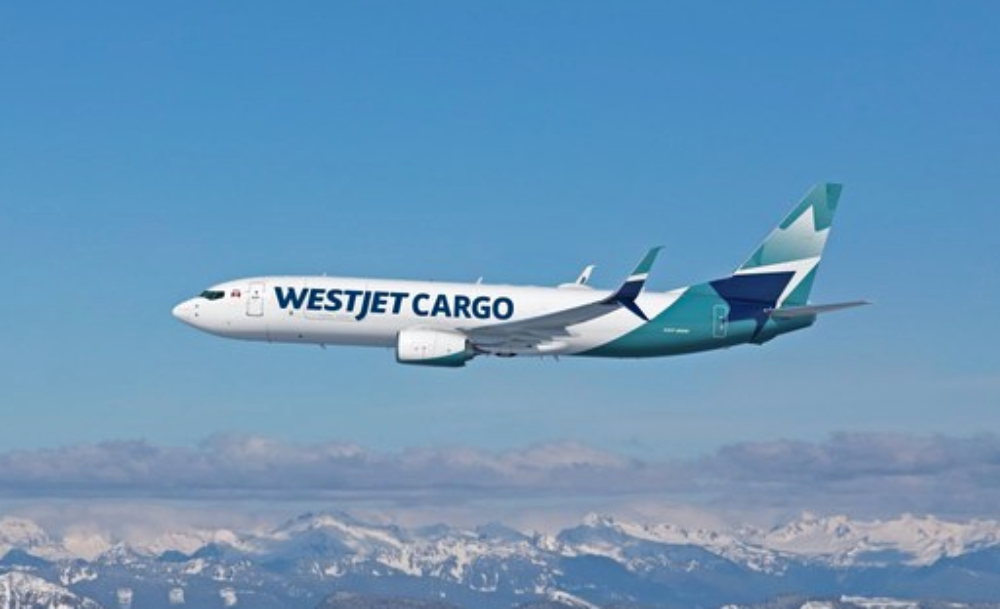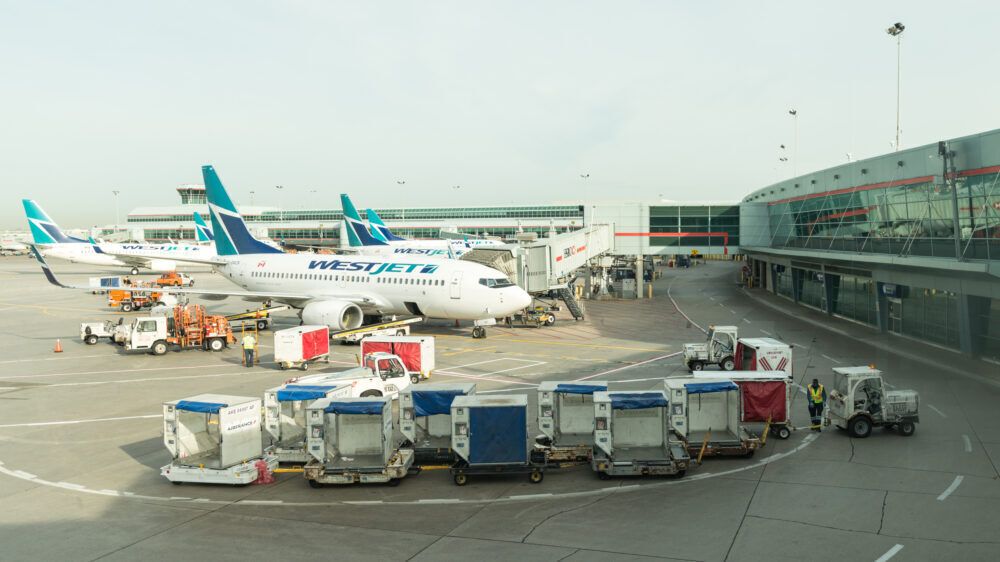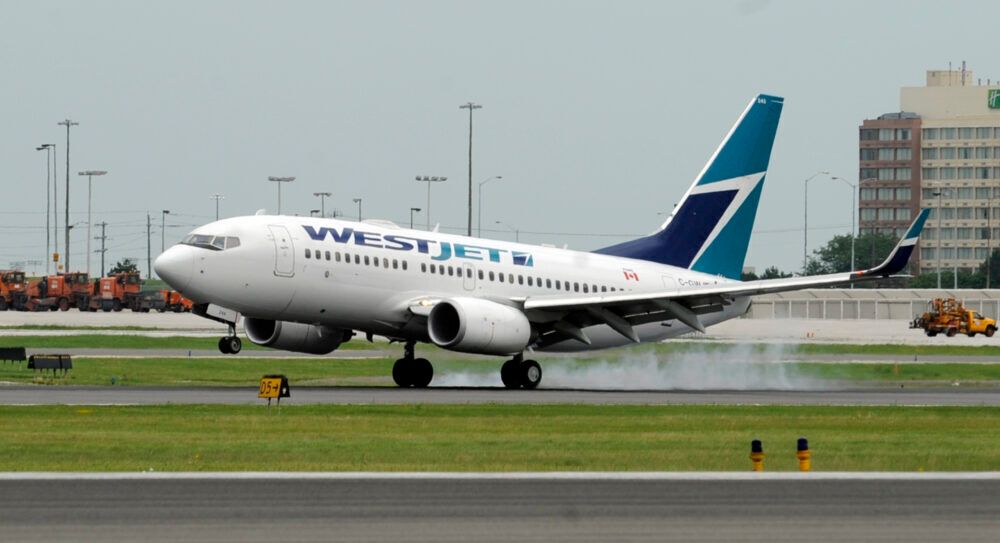Canada's WestJet is moving to boost its cargo operations. The Calgary-based airline is launching a new dedicated cargo service, using 737-800 Boeing Converted Freight (BCFs). WestJet expects to have its first dedicated freighter in the air by this time next year.
"Our new dedicated commercial cargo aircraft are a natural evolution of the competitive guest services WestJet has successfully provided over our 25-year history," says WestJet Cargo Executive Charles Duncan.
The right-sized plane for the standard body freighter market
Boeing calls its 737-800BCF aircraft the right-sized plane for the standard body freighter market. The fuel-efficient aircraft features CFM engines, a payload of 22.7 tonnes (there are 12 main deck pallet positions), and a 2,230 mile (3,750 kilometer) range.
"It (the 737 freighters) will provide cargo customers with the reliable on-time performance and cost-competitive advantage synonymous with WestJet," Duncan said.
WestJet will start with one 737-800BCF aircraft. This plane is currently slated to start flying in the second quarter of 2022, with more planes in the pipeline.
Like most commercial airlines, WestJet has long used its passenger aircraft to fly freight. The 737-800BCFs will work in conjunction with the existing freight capabilities. WestJet says having dedicated freighters will offer customers greater flexibility and efficiencies.
"Dedicated, cost-efficient, and nimble narrowbody freighters will make WestJet Cargo a dynamic and strong competitor," says Duncan.
Stay informed: Sign up for our daily and weekly aviation news digests.
Canceled passenger flights highlight vulnerabilities in global supply chains
The past 15 months have highlighted the role commercial airlines play in the supply chain, especially for perishable and time-sensitive freight. The vulnerabilities of the supply chain were exposed as airlines like WestJet curtailed their passenger schedules in response to the travel downturn.
Since then, many airlines have begun paying their formerly neglected freight operations some attention. Freight operations have since helped financially prop up many airlines and subsidize underperforming passenger operations.
Competitor Air Canada saw the value of freight last year and began converting older Boeing 767-300ERs from its Rouge fleet into dedicated freighters. Seven 767-300ERs are currently undergoing passenger to freighter (P2F) conversions by Israel Aerospace Industries (IAI). Recently Air Canada said its first converted 767 freighters would soon begin flying to Central and South America.
Boeing 737-800BCFs help put WestJet into the box seat
WestJet is slightly slower off the mark. But the airline sees its dedicated cargo aircraft as a competitive alternative to the Air Canada product.
"Our collective goal at WestJet has been to provide competitive prices and superior service levels," said Ed Sims, WestJet, President and CEO. "As we launch our dedicated cargo service, into a market that maintains an even greater need for competitive choice than what we saw in 1996, it is our commitment to provide customers with more choice, decreased costs, and exceptional customer service."
With scheduled international passenger flights still significantly down, airlines with dedicated freighter aircraft have an edge in capturing cargo market share. Boeing says the dedicated freighter market will grow more than 60% to 3,260 planes over the next two decades.
Boeing forecasts air freight between North and South America to grow 2.6% annually over the next two decades. Air freight between North America and North Asia (including China) is expected to grow 4.3% annually. With its previous experience operating international services, WestJet is positioning nicely to capture a piece of the action.



